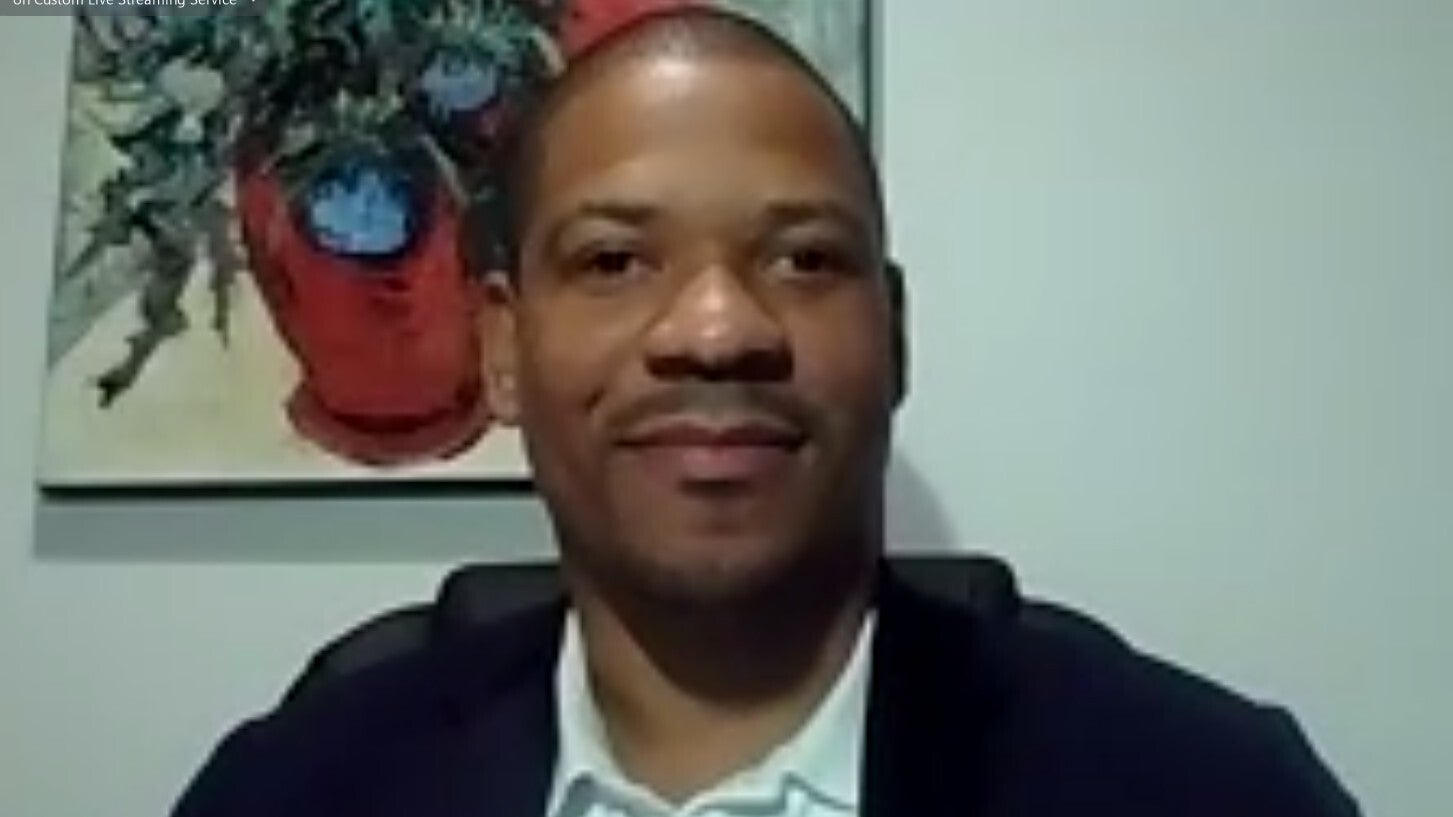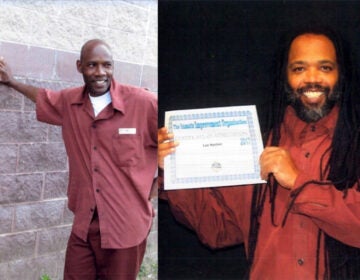Del. pastor who delivered Biden’s inaugural prayer supports ‘clean slates’ for formerly incarcerated
Legislation to automatically expunge some criminal convictions in Delaware would make it easier to shed collateral punishments after being released from prison.

Rev. Silvester Beaman gives the benediction during the 59th Presidential Inauguration at the U.S. Capitol in Washington, Wednesday, Jan. 20, 2021. (AP Photo/Patrick Semansky, Pool)
Corie Priest of Wilmington had a hard time finding work after he was released from prison.
Like many others, he still faced collateral punishments from his criminal conviction after he served his sentence.
“A felony conviction is a weapon of mass destruction for economic growth and upward mobility,” Priest said. His conviction meant a lifetime of explaining himself everywhere he went.
“Trying to get an education, housing, employment, it was a daunting task for me to have to explain why I had this felony conviction.”

After unsuccessfully applying for a pardon for years, Priest was finally pardoned for his drug trafficking conviction, but that didn’t erase the conviction from his record.
Priest finally had his conviction officially expunged thanks to legislation sponsored by state Sen. Darius Brown in 2019 that made it easier to erase criminal records. That allowed those with no prior or subsequent convictions to petition for specific violations or misdemeanors to be expunged after a set period of time. Non-violent felonies are also eligible to be erased at a judge’s discretion after a period of seven years, as long as the person had no prior or subsequent convictions.
Priest now works as a community engagement specialist in the Delaware Department of Justice and is an advocate for Brown’s proposed “clean slate” legislation. That bill would automatically expunge some criminal convictions, to make it even easier for people to shed those collateral punishments that linger after being released from prison.
“The ‘clean slate’ policy model empowers Delawareans to automatically seal or expunge qualifying criminal records for people who remain crime-free for a set period of time,” Brown said. “When a criminal record is sealed or expunged, it no longer shows up on background checks, and individuals can legally answer ‘no’ when asked if they have been convicted of a crime.”
The effort got support on the national stage from Wilmington pastor Rev. Silvester Beaman, who delivered the benediction at President Joe Biden’s inauguration in January. In that prayer, Beaman called for Americans to find a “common humanity.” In that commonality, he called to “remove the stigma of the so-called oppressed.”
“A lot of that was birthed in me, in my spirit, about this whole subject of having a clean slate,” Beaman said. “When we find our humanity, we really do find a spirit where we seek something beyond correction, something beyond punishment. If someone breaks the law and they are incarcerated, that should not be a death sentence, or shackles for their entire life.”
There’s also a national effort to help formerly incarcerated people leave their criminal records behind. Delaware Congresswoman Lisa Blunt Rochester is sponsoring legislation in the U.S. House similar to create a federal ‘clean slate’ program.
“It’s all about a simple proposition. That those who have served their time and repaid their debt to society just deserve a fair shot and a second chance and a clean slate,” she said.
It’s a personal mission for Blunt Rochester, too. She told the story of her cousin who learned a trade while he was in prison but was unable to get a job after being released. She said he ended up getting involved in crime again and was murdered.
“When our loved ones, our neighbors, our friends are barred from fully participating in our society, we all lose out,” she said.
She calls her federal legislation the “strange bedfellows” bill, because it’s drawn support from very different corners of the political spectrum. “It’s people from all different backgrounds, all political persuasions that have worked with me on clean slate,” she said.
Brown’s bill has not yet been introduced into the Delaware General Assembly. It’s not clear what specific crimes would be covered by this automatic sealing or how long it would take for that to happen.

Get daily updates from WHYY News!
WHYY is your source for fact-based, in-depth journalism and information. As a nonprofit organization, we rely on financial support from readers like you. Please give today.






